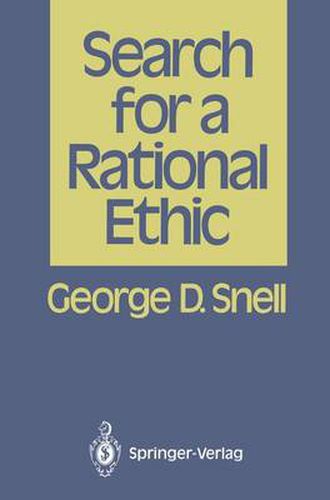Readings Newsletter
Become a Readings Member to make your shopping experience even easier.
Sign in or sign up for free!
You’re not far away from qualifying for FREE standard shipping within Australia
You’ve qualified for FREE standard shipping within Australia
The cart is loading…






This title is printed to order. This book may have been self-published. If so, we cannot guarantee the quality of the content. In the main most books will have gone through the editing process however some may not. We therefore suggest that you be aware of this before ordering this book. If in doubt check either the author or publisher’s details as we are unable to accept any returns unless they are faulty. Please contact us if you have any questions.
Knowledge we have in great abundance, and enough exists if wisely used to solve many of the most threatening problems of humanity. The key word is wisely; wisdom we sorely lack. There is a special role to be played by distinguished scholars who, having passed the most challenging tests of their specialized fields, are willing to confront the central questions of human existence. What is life (where is the boundary between life and non-life)? Why do we behave as we do? What is the meaning of human existence? Where do ethical precepts come from? What should be the goals of civilization, beyond mere survival and hedonic reward? These are the kinds of topics George Snell boldly addresses in Search for a Rational Ethic. Scientific knowledge is especially important in any such endeavor, because we are in the golden age of science, and scientific research increasingly impinges on the domain of philosophy. Indeed, it is not too much to say that philosophy has consisted to a large extent of failed neurological models. Much of its investigation pivots on how the mind works, that is, to what extent the mind can perceive reality, how concepts are formed, what is the source of moral reasoning, and so forth. In creasingly, scientific research is leading us to the physical basis of mind. If we are ever to create the correct neurological model, it will be through science.
$9.00 standard shipping within Australia
FREE standard shipping within Australia for orders over $100.00
Express & International shipping calculated at checkout
This title is printed to order. This book may have been self-published. If so, we cannot guarantee the quality of the content. In the main most books will have gone through the editing process however some may not. We therefore suggest that you be aware of this before ordering this book. If in doubt check either the author or publisher’s details as we are unable to accept any returns unless they are faulty. Please contact us if you have any questions.
Knowledge we have in great abundance, and enough exists if wisely used to solve many of the most threatening problems of humanity. The key word is wisely; wisdom we sorely lack. There is a special role to be played by distinguished scholars who, having passed the most challenging tests of their specialized fields, are willing to confront the central questions of human existence. What is life (where is the boundary between life and non-life)? Why do we behave as we do? What is the meaning of human existence? Where do ethical precepts come from? What should be the goals of civilization, beyond mere survival and hedonic reward? These are the kinds of topics George Snell boldly addresses in Search for a Rational Ethic. Scientific knowledge is especially important in any such endeavor, because we are in the golden age of science, and scientific research increasingly impinges on the domain of philosophy. Indeed, it is not too much to say that philosophy has consisted to a large extent of failed neurological models. Much of its investigation pivots on how the mind works, that is, to what extent the mind can perceive reality, how concepts are formed, what is the source of moral reasoning, and so forth. In creasingly, scientific research is leading us to the physical basis of mind. If we are ever to create the correct neurological model, it will be through science.